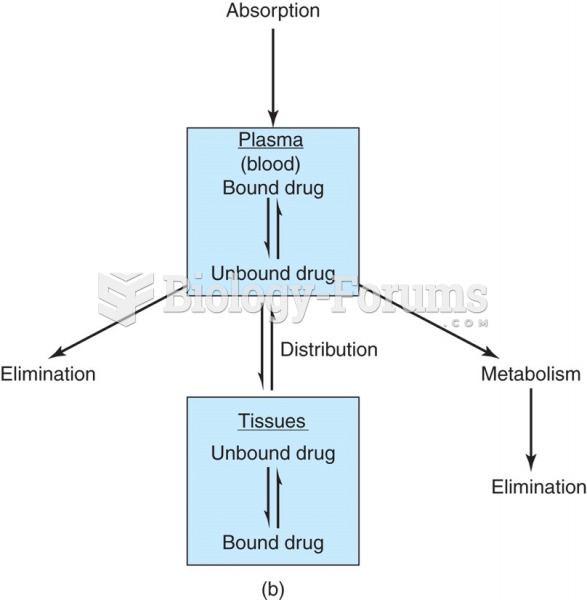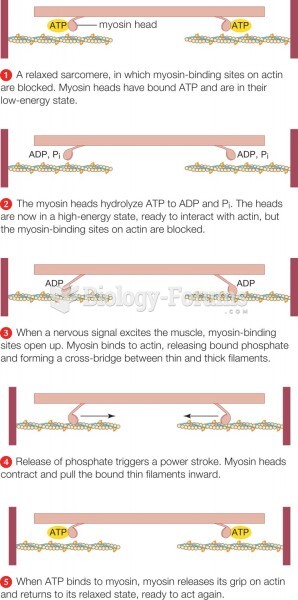|
|
|
Did you know?
Disorders that may affect pharmacodynamics include genetic mutations, malnutrition, thyrotoxicosis, myasthenia gravis, Parkinson's disease, and certain forms of insulin-resistant diabetes mellitus.
Did you know?
More than 4.4billion prescriptions were dispensed within the United States in 2016.
Did you know?
In 1844, Charles Goodyear obtained the first patent for a rubber condom.
Did you know?
Recent studies have shown that the number of medication errors increases in relation to the number of orders that are verified per pharmacist, per work shift.
Did you know?
Vaccines prevent between 2.5 and 4 million deaths every year.







